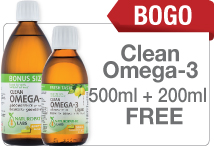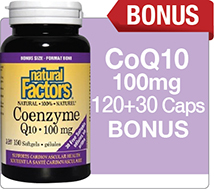Echinacea Supplement Uses, Benefits & More
Updated Mar. 12th, 2024 | Read Time: 4 Minutes | What You Will Learn:
- Key Health Benefits of An Echinacea Supplement
- Immune System Support Properties
- Anti Aging Benefits
- Different Types of Echinacea
- Shopping For A Quality Echinacea Supplement
- Interactions, Warnings and Side effects
Echinacea is the top natural supplement sold today, and for one good reason; it's an immune powerhouse! If we take a historical look back at the roots of ancient medicine, Echinacea has an impressive resume- especially when we associate it with the bounce-back time needed to recover from sickness. If that doesn't convince you, it was even in Dr. Oz's Top 3 Supplements for fighting against cold and flu.
Key Health Benefits of An Echinacea Supplement
Echinacea has several immune-specific actions in the body, including antibacterial, antimicrobial, anti-viral, anti-protozoal and anti-parasitic.
It’s also a decongestant, lymphatic (meaning it helps to tonify the lymphatic system), anti-inflammatory, and effective immunostimulant. Immunostimulants are products that increase the functions of the immune system, which as we know, is the system of the body that is responsible for protecting us from infection. Immunostimulants can act on any number of immune cells and ward off infection in several ways.
Immune System Support Properties
Echinacea stimulates white blood cells, which scavenge for bacteria and cellular waste. It also stimulates helper 'T cells', which mobilize other immune cells to fight infection. Finally, if that weren't enough, echinacea stimulates the production of collagen which rebuilds damaged tissue.
For those of us who aren't Doctors, what does all this mean? It means that it can cut an individual’s chances of catching a cold or flu, as well as shorten the duration of these infections once caught. Echinacea is recommended by natural health practitioners for a variety of conditions including prevention and early treatment of colds and flu, as well as skin infections and ulcers, herpes, canker sores, eczema and wound cleansing. Before echinacea was used to fight against the dreaded cold and flu, it was used in part, to help with snakebites – this was before it was used as a herbal medicine.
Anti-Aging Benefits
Echinacea is a potent antioxidant and free radical scavenger. Free radicals are atoms that are missing an electron and steal them from healthy atoms, or cells; thus damaging healthy cells. Antioxidants stabilize free radicals, reducing their capacity for damage. Antioxidants protect healthy cells as well as protect your body from aging.
Different Types of Echinacea
There are a few species of Echinacea, including the more commonly known and used angustifolia, purpurea, and pallida. Look for root extracts, as studies show the root to be more the source of medicinal content and responsible for its medicinal action. Echinacea can be purchased as a loose herb, encapsulated herb, tablets, extract or tincture. It is very often paired with goldenseal and other immune-specific herbs, for cold and flu support and prevention.
Shopping For A Quality Echinacea Supplement
Fortunately for us, Dr. Oz did his homework. Echinaforce by A. Vogel is one of the strongest lines of defence – Dr. Oz named A. Vogel and this product line specifically, as one of the Top 3 supplements to take at the onset of cold and flu. A. Vogel makes their herbal remedy using fresh, organically grown plants.
Tinctures are carefully concentrated under a vacuum and used for the production of their tablets, such as Echinaforce Extra, as well as their toothpaste and cream. A. Vogel's products are sugar and gluten-free and certified by Bio Suisse. It is best to take them at the first sign of infection. Along with echinacea, this tablet also contains organically grown dried roots. Echinaforce can also be purchased in liquid or lozenges.
Interactions, Warnings and Side Effects
Echinacea is in the same plant family as ragweed; therefore, it is not recommended that individuals with ragweed allergies use echinacea. Due to Echinacea’s immunostimulating action, those on immunosuppressive or immunoglobulin therapies, such as transplant recipients, should not use it.
Those with auto-immune conditions, such as lupus, RA, and diabetes, should use with caution and only under the supervision of a healthcare professional. Those with renal disease should not use Echinacea because it may lead to electrolyte imbalances. It's wise to remember that prolonged use of Echinacea is not recommended, as the body appears to become resistant to its immunostimulating properties. Long-term use of greater than 8 weeks is not advised.























I like to include echinacea in my diet as it helps me to ward off colds.
Hello Lorraine,
Glad echinacea is helping to keep the cold bug away! It is a great cold and flu supplement to take as a preventative or upon onset of cold symptoms.
Keep calm & carry on.
We use this along with golden seal and oregano oil to relieve the symptoms of colds and mucous infection in our lungs. Much better than pharmaceutical remedies off the drug store shelf.
Hello Sharon,
Thank you for sharing. Echinacea is a great natural herb that helps with cold and flu symptoms and is great to take as a preventative during that season. Pairing it with oil of oregano when you have symptoms work well but it's important to remember to only take oil of oregano for a maximum of 5-7 days at a time due to its antibacterial properties. This article outlines more beneficial supplements for cold & flu season:
https://www.nationalnutrition.ca/articles/health-concerns/cold-and-flu/
Works great when you are fighting a cold and congestion.
Hello Sharon,
Indeed, echinacea is a great supplement to help combat cold symptoms and faster your immune system. You can delve deeper into this nutrient in our educational videos as well: https://www.youtube.com/watch?v=jiuq31375Gg
Stay healthy & well!